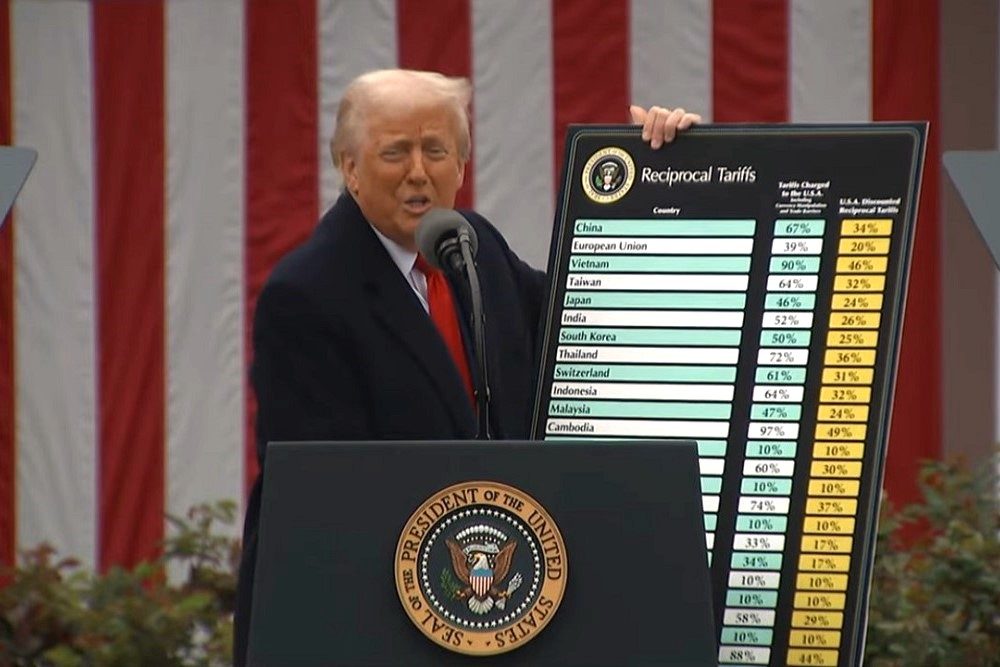Ag Leaders Respond to President Trump’s Reciprocal Tariffs

During an announcement from the White House Rose Garden on Wednesday afternoon, President Trump says he is imposing reciprocal tariffs on U.S. trading partners.
First, Trump announced a ten-percent across-the-board tariff on all goods entering the U.S. beginning on April 5. Then, U.S. Commerce Secretary Howard Lutnick handed him a giant table listing 25 countries, along with tariffs rates the White House says are charged on U.S. goods, followed by reciprocal tariff rates that Trump will impose on each respective country beginning on April 9.
At the top of the list was China, which will now see a 34-percent tariff on their products. That was followed by 20-percent tariff on products entering from the European Union, a 46-percent tariff on products from Vietnam, and a 32-percent tariff on goods from Taiwan.
In addition, Trump announced a 25-percent tariff on all foreign manufactured automobiles and auto parts effective at 12:01 a.m. on April 3.
Following Trump’s tariff announcement, several ag leaders issued the following responses:
Zippy Duvall, President of American Farm Bureau Federation (AFBF):
“Trade is critical to the success of farmers and ranchers across the country. We share the administration’s goal of leveling the playing field with our international partners, but increased tariffs threaten the economic sustainability of farmers who have lost money on most major crops for the past three years.
“More than 20% of farm income comes from exports, and farmers rely on imports for crucial supplies like fertilizer and specialized tools. Tariffs will drive up the cost of critical supplies, and retaliatory tariffs will make American-grown products more expensive globally. The combination not only threatens farmers’ competitiveness in the short-term, but it may cause long-term damage by leading to losses in market share.
“We encourage the administration to work toward a swift resolution to trade disagreements to avoid tariffs that put farmers and ranchers in the crosshairs of retaliation, and to pursue strategies that expand market opportunities for the men and women who grow the food every family in America relies on.”
Ethan Lane, Senior Vice President of Government Affairs with the National Cattlemen’s Beef Association (NCBA):
“For too long, America’s family farmers and ranchers have been mistreated by certain trading partners around the world. President Trump is taking action to address numerous trade barriers that prevent consumers overseas from enjoying high-quality, wholesome American beef. NCBA will continue engaging with the White House to ensure fair treatment for America’s cattle producers around the world and optimize opportunities for exports abroad.”
